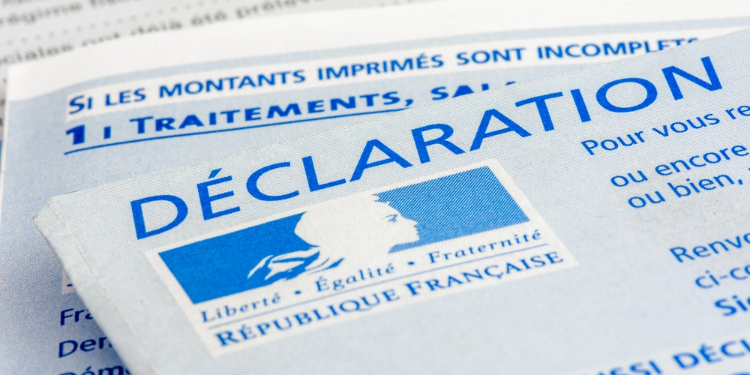
The French tax filing campaign started last month and will continue until early June for online filers. This year, a new feature has been added - the declaration of property assets in addition to the income tax return. As an expatriate living in France, you may be wondering which tax rules apply to you. This article breaks them down for you.
What are the deadlines for filing your French tax return?
In France, the deadline for filing your French income tax return varies depending on your location and preferred filing method. Since the system has been digitalized, online tax filing has been available since April 13. If you choose to file your return online, you have a longer deadline. The submission period goes from April 6 to 25, compared to paper returns. Where online filing is not feasible, you have until May 22 to submit your return on paper.
If you opt for online filing, the deadline varies according to your location, and the country has been divided into three zones, each comprising multiple administrative departments:
- Zone 1 comprises departments 1-19 and non-residents, with a deadline of May 25.
- Zone 2 includes departments 20-54, and you have until June 1 to submit your tax return.
- Finally, in Zone 3, which includes departments 55-974/976, the deadline is June 8. However, if you are classified as a non-resident for tax purposes, you fall under Zone 1.
Otherwise, the deadline depends on your address. If you fail to file your tax return on time, you may face a penalty of between 10% and 40% of the tax due, and may also have to pay interest on any overdue amounts.
Understanding withholding tax and income adjustments in France
France implemented a new withholding tax system as of January 1, 2019, allowing the tax authorities to deduct a portion of your monthly income tax from your salary. Self-employed individuals are able to make payments on a quarterly basis. However, the authorities may not be aware of all your income when you file your tax return. In such cases, adjustments may be made to your income tax liability after you have submitted your tax return, usually in the autumn.
Determining income tax Liability for expats in France
Expatriates must be classified as tax residents to be subject to income tax in France. The French tax authorities use various criteria to determine tax residency, such as owning a principal residence or domicile in France, having a professional or non-professional activity in France, or having the majority of their economic interests in France, where French-sourced income surpasses foreign-sourced income. Meeting any of these criteria establishes tax residency in France.
Understanding tax residency criteria in France
To be considered a tax resident in France, an individual must meet at least one of several criteria, such as having a domicile or principal residence in France or spending more than 183 days per year in metropolitan France, the coastal islands, Corsica, or the overseas departments. If any of these criteria are fulfilled, the individual is liable for income tax in France.
Taxation of primary employment in France
The determination of tax residency in France is based on the main activity that generates the highest income or to which an individual devotes the most time. Secondary activities are not taken into account for tax purposes. In cases where an individual has multiple jobs in France, the tax authorities will consider the one that requires the most time or generates the highest income.
Determining tax residence based on economic interests in France
The determination of tax residency in France is based on various factors, such as an individual's income sources, asset management location, or the center of business activities. If an individual has the majority of their income from France, manages assets in France, or establishes the center of their business activities in France, they will be considered a tax resident in France. However, if an individual is not a tax resident in France, only the income sourced from France will be subject to income tax.
Taxable income in France
The tax system in France is based on income from French sources, which includes salaries, unemployment benefits, income from self-employment (such as a profession or trade), daily social security benefits for sickness or maternity, pensions and retirement benefits paid by French institutions,
income from French savings, and income from a property located in France (such as rental income or capital gains from the sale of the property).
Avoiding double taxation as an expat in France
Many countries have signed bilateral agreements to prevent double taxation for expatriates. In France, an individual's tax liability is determined based on their status as a French tax resident or not. You can find a link to the bilateral treaties at the end of this article.
French tax residency and double taxation
If an individual is considered a tax resident of France and their home country has a bilateral treaty with France, they won't be subject to double taxation. However, if there's no treaty in place, any income from French sources will be subject to taxation in France, even if the individual's home country has already taxed them on that same income.
Taxation for non-residents in France
If you are an expatriate in France, it is essential to check whether your home country has signed a bilateral tax treaty with France. If there is no treaty, you may be subject to taxation on all your income, including income earned outside of France. You can find a link at the end of this article for more information on bilateral treaties.
Do expats have to pay local taxes in France?
The question of whether foreigners who own or rent property in France have to pay local taxes is a common one. In France, there are two primary types of local taxes that apply: the "taxe d'habitation" and the "taxe foncière".
Taxation of second homes in France - taxe d'habitation
If you own a second home in France, you will generally be subject to the "taxe d'habitation". This tax is payable if you own a second home in France as of January 1 of the year in question, regardless of whether you are the owner, a tenant, or an occupant, and whether you are a French tax resident or not. This means that if you own a home in France, it will be considered a second home, and you will have to pay the "taxe d'habitation".
Property tax in France
The "taxe foncière", or property tax, is a mandatory tax for all property owners in France, regardless of their tax status. It is important to note that property tax is charged per property, which means that if you own multiple properties in France, you will be required to pay several property taxes.
Property wealth tax (Impôt sur la fortune immobilière - IFI) for expatriates in France
If you are a French tax resident, the value of your property is already considered for calculating your taxable income. In addition, if the total value of your taxable assets, including your property, exceeds €1.3 million, you will also be subject to the wealth tax (IFI).
However, if you are not a tax resident in France, it is important to check whether there is a tax treaty between your home country and France to avoid double taxation. In general, if the value of your property in France exceeds €1.3 million, you will be subject to the IFI.
Useful link:
France: bilateral treaties



















